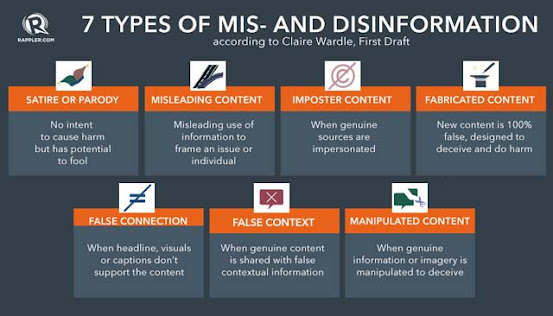At First Draft, we advocate using the terms that are most appropriate for the type of content; whether that’s propaganda, lies, conspiracies, rumors, hoaxes, hyperpartisan content, falsehoods or manipulated media. We also prefer to use the terms disinformation, misinformation or malinformation. Collectively, we call it information disorder.
Video training series
This video with Alastair Reid, Digital Editor, walks you through examples of the seven most common types of information disorder. To understand information disorder we need to understand the different types of content being created and shared, the motivations of those who create it, and how it spreads. These help us understand the complexity of this ecosystem and the shades of grey that exist between true and false. --
Covering coronavirus: An online course for journalists This online course gives journalists the practical tools, techniques, and advice they need to tackle the infodemic and produce credible coverage on coronavirus.
Sign-up for free and get started http://covid.firstdraftnews.org - First Draft is a non-partisan, non-profit organization that harnesses the power of community to champion credible news coverage across the world. Through the tools we provide, journalists and the public can make informed judgments about the information they encounter online. You can find more of our research, training, and journalist resources at http://www.firstdraftnews.org.
Follow us on Twitter to keep up with the latest news on information disorder: http://www.twitter.com/firstdraftnews Subscribe to our YouTube channel for more videos, resources, training and tools on information disorder: http://www.youtube.com/firstdraftnews
INFORMATION DISORDER:
Toward an
interdisciplinary framework for research and policy making
While the historical impact of rumours and fabricated content has been well documented, efforts to better understand today’s challenge of information pollution on a global scale are only just beginning. Concern about the implications of dis-information campaigns designed specifically to sow mistrust and confusion and to sharpen existing sociocultural divisions using nationalistic, ethnic, racial and religious tensions is growing. The Council of Europe report on “Information Disorder: Toward an interdisciplinary framework for research and policy making” is an attempt to comprehensively examine information disorder and to outline ways to address it.


No comments:
Post a Comment